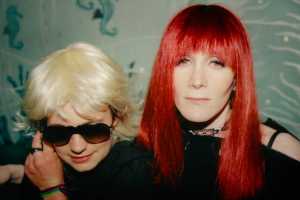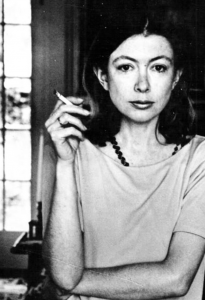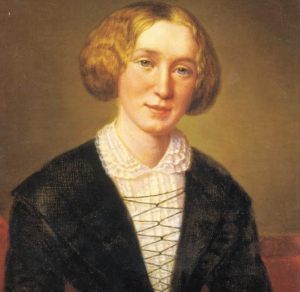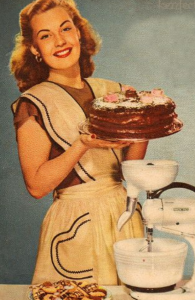It’s Post#MeToo. And woman writers are still a niche.
Amazingly, we still seem to be using the term “female author” or “woman writer.” Amazon has a category, “Women’s Fiction.” There are a lot of niche prizes out there for “Women Authors.” None for “Men Authors.”
Being a woman still “poses issues” for those marketing fiction, and it seems to be not going away. Instead, women seem to have accept their Etsy, craftsy, whimsical lot, we’re buying knitting needles, pastel-colored cake mixing machines, and romance novels like it’s 1952, and we’re facing what can only be called a backpedaling down into the gender problem of “all these women trying to write and publish books!”
George Eliot was born Mary Evans, in 1819. At the time, much like now, 200 years later, mind, female writers were publishing lighthearted romances, pretty much exclusively. But Mary Evans was writing more serious literary fiction, and so she took the name of her husband George, and posed as a man, getting published at the age of 40. Because by this time she was something of a literary legend due to her writings in the serious magazine “Westminster Review” she was able to bounce back from the discovery of her gender.
However, the story of JT LeRoy, famed transgender male to female author does not go down so well. Laura Albert, then a phone sex operator approaching over-the-hill fast, took on a persona of a boy called Jeremiah Terminator LeRoy, and befriended many contemporary literary male writers and artists, including filmmaker Gus Van Sant, over the phone. Laura Albert called JT her “avatar,” but when she had to appear in real life as her career bloomed under the guise of the young male hustler, she employed her boyfriend’s sister to play the part of the androgynous boy.
At the height of JT’s career, and after just three smash books, a journalist at The NYT outed Albert, and her fall from grace was rude, coarse, and somewhat unfair. After all, surely Albert had only been a kind of “meta” George Eliot for 90s Hollywood? Laura Albert recovered quickly with a writing gig on the TV show “Deadwood,” but it has to be noted that she has never reached such heady heights of fame again.

“JT LeRoy” and Laura Albert
It has to be realized that this is down to the fact that JT was desired by the male gay writers Albert had contacted. He was a “dream” angry young man for a writing scene looking for hard lit. Why can it not be said that Albert simply wrote to market? However, it is now widely grunted she is a liar, a hoaxer, and a cheat, even though her books stand on their own merit as some of the best 90s American literature around, albeit “by a woman.”
So why is it that authors are expected to declare gender? Does it really have to be a thing? After all, men in the arts have always been the same. While Picasso swanned about working in his studio, his wives popped out sprogs and did the washing. Philip K Dick practically ignored his kids to get on with his books. David Lynch divorced his wife and left his baby to finish Eraserhead, his first movie. Women artists and writers have had no choice but to play second fiddle, and have therefore carved a niche with writing on relationships and romance. They used the only tools they had around them: the home, and their small circle of family and friends.
But this is 2017, and women can be whoever they want to be. The problem is that men don’t buy women writers. Well. They buy Harry Potter. Because J.K. Rowling remains a neutral name, no feminine bits. Rowling even wrote as Robert Galbraith to see what happened. Horridly, her male editor said, “I never would have thought a woman wrote that” when he found out it was her. She was a bestseller.
The Guardian reports on this bias, “In the US, The New York Review of Books shows a stronger bias. Among authors reviewed, 83% are men (306 compared to 59 women and 306 men), and the same statistic is true of reviewers (200 men, 39 women). ” Penguin editor Anne Sowards told the Wall Street Journal. “When we think a book will appeal to male readers, we want everything about the book to say that-the cover, the copy and, yes, the author’s name.”
So, 150 years after the Brontë Sisters published as The Bell Brothers, women still have to hide their gender to sell their books! Bustle reports of the Man Booker Prize, “Of the nearly 50 prizes awarded since 1969, only 17 of them have been received by women authors, a mere 34 percent. What’s more, a woman of color has never won the prize.”
So are women slowed down by circumstance? Is it our sole responsibility to pop out babies that means we spend periods of our life unable to grow? Have many women given up and turned to writing pulp romance and scrapbooking, because it seems easier than trying to beat a system that still rewards hard-line males over females?
Are book deals really being given to females as much as men, or, as Jane Friedman pointed out, data could be skewed by the romance marketplace, which is my opinion is bizarrely buoyant given the hatred for the sexism of Mills and Boons fiction during the 80s and 90s when I was growing up.
But when “Mommies” are shouting from the rooftops that making cute cupcakes and having kids is “the best job in the world!” there’s really little hope. I fear the irony has been lost, and women actually have succumbed to the stereotype. We really might have gone backwards into a time that saw huge repression for girls coming up into the work market.
The New Republic’s Ruth Franklin reports on published writer quotas in 2010, male/female, and saw a “literary glass ceiling,” revealing, “The boutique Penguin imprint Riverhead—came close to parity, with 55 percent of its books by men and 45 percent by women. Random House came in second, with 37 percent by women. It was downhill from there, with three publishers scoring around 30 percent—Norton, Little Brown, and Harper—and the rest 25 percent and below, including the elite literary houses Knopf (23 percent) and FSG (21 percent). Harvard University Press, the sole academic press we considered, came in at just 15 percent.”

Joan Didion
It’s going to be up to women to get their writing up to scratch, and to gain some confidence from somewhere or other to drive their work forward – it’s up to you to find that strength.
Maybe self-publishing is the new place to normalize gender, instead of causing a rift of romance (women) versus military adventure (men). As Joan Didion once said of second-wave feminism, “To those of us who remain committed mainly to the exploration of moral distinctions and ambiguities, the feminist analysis may have seemed a particularly narrow and cracked determinism.” Simply put, the idea of being a woman is not something to define by, rather, it should be ignored, with time spent on other thoughts. But this isn’t so easy when we are made to think about it all the time by the media.
Because let’s face it, it’s not really on that we’re expected to pretend to be men to get our work seen, is it?
Get an Editorial Review | Get Amazon Sales & Reviews | Get Edited | Get Beta Readers | Enter the SPR Book Awards | Other Marketing Services
























It’s certainly true, as Cate Baum points out, that the JT LeRoy books written by Laura Albert “stand on their own merit as some of the best ’90s American literature.” However, there are inaccuracies and misrepresentations in her piece, which should be corrected.
1) “JT LeRoy, famed transgender male to female author”
The documentation from that time shows plainly that JT LeRoy was never described that way by anyone. JT was gender-fluid and resisted labeling himself for virtually his entire existence — and he was always written about and referred to as “he.”
2) “Laura Albert, then a phone sex operator approaching over-the-hill fast”
There’s no such thing as an over-the-hill phone-sex operator. Anyone can do that job in their 90s, if they want to…
3) “befriended many contemporary literary male writers and artists”
While quite correct that JT befriended contemporary writers — as opposed to writers from the 19th-century — it is incorrect to imply some sexist agenda of manipulating men. It didn’t happen like that — ask such early JT confidantes and supporters as Sharon Olds or Mary Gaitskill or Mary Karr.
4) “Laura Albert recovered quickly with a writing gig on the TV show ‘Deadwood'”
Laura Albert was writing for “Deadwood” at the time of the reveal by the NY Times. And for years after that reveal, it was extremely difficult for her to write at all, in any voice, having been so savaged by a media that had formerly been so worshipful.
5) “Albert was simply writing to market”
Laura Albert wrote what she had to write, just as any good author writes what they have to write. That’s why her writing is so immediate, and why people keep reading it.
6) “it is now widely grunted that she is a liar and a hoaxer and a cheat”
Such grunting actually is not so widespread. Rather, Laura Albert is now preparing a new manuscript for publication, and her JT LeRoy books have been reissued internationally. And with Jeff Feuerzeig’s film “Author: The JT LeRoy Story” playing to theaters around the world, longtime admirers of her writing as well as newcomers are receiving Albert with respect and enthusiasm and support.
Wow, a JT LeRoy superfan! Is that you, Laura?! All my info was from linked articles and the documentary from this year. The phone sex operator comment was about her age, not her job. Point being, when Laura turned out not to be a fabulous young trans writer, people lost interest and criticized her. My point is, female writers don’t get as much kudos as male writers, including those who have a gender transition once established as a male at birth. I agree with you of course that Laura Albert deserves more credit than she gets for her work.